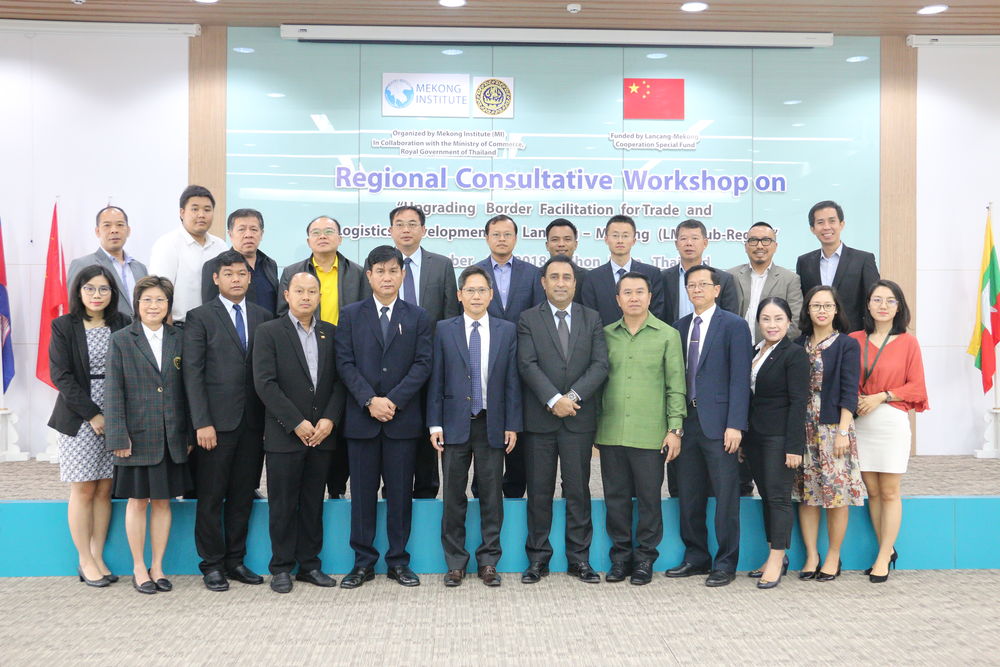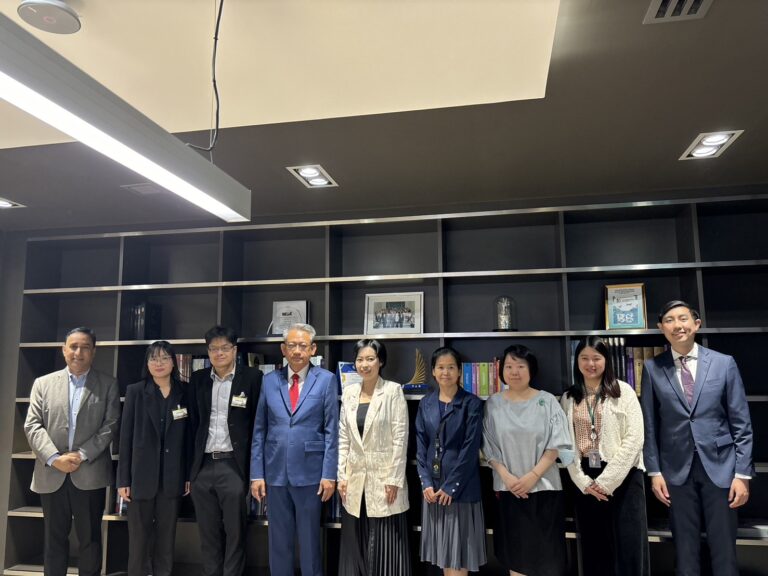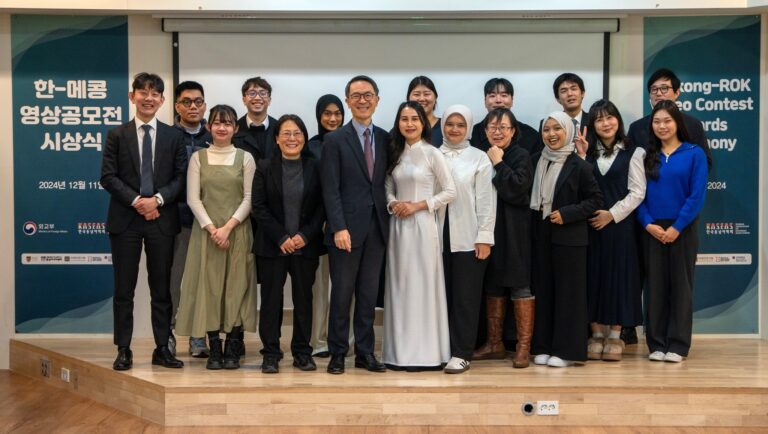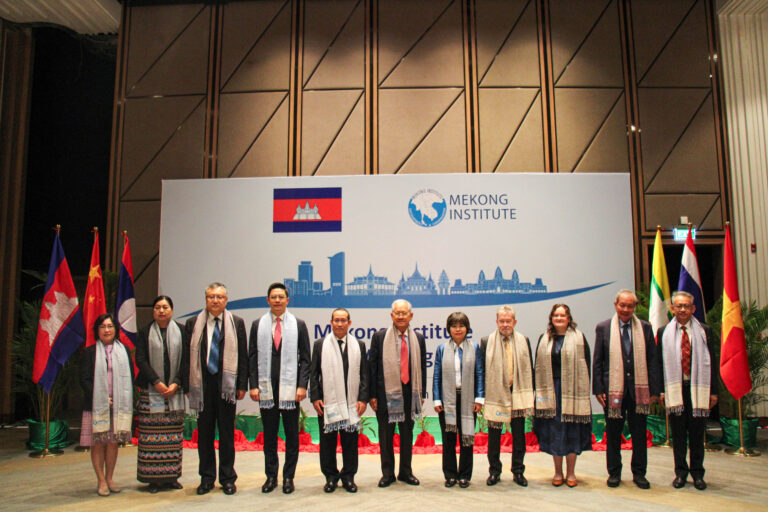Following the conduct of the study on “Improvement of Infrastructures and Regulations for Border Economic Zones”, MI organized a regional consultative workshop on Upgrading Border Facilitation for Trade and Logistics Development in Lancang-Mekong Sub-region last December 21, 2018 at the MI Residential Training Center, Khon Kaen, Thailand. The one-day workshop set to deliver a joint review of the preliminary findings of the study, suggestions to policy solutions and actions from project stakeholders as contribution to the project intervention strategies and implementation for the next three years.
Sixteen mid- and senior-level officials from ministries and government agencies from the Lancang-Mekong (LM) countries attended the workshop. These included the Cambodia Ministry of Public Works and Transport and the Cambodia Customs Department; P.R. China’s Hekou Administrative Committee of Border Economic Cooperation Zone for P.R. China; Lao Customs Department, Ministry of Construction and Transport, and Savannakhet Special Economic Zone; Myanmar Ministry of Commerce and the Myanmar Customs Department; and the Vietnam Customs Department.
Dr. Watcharas Leelawath, MI Executive Director, pointed to the importance of collaboration among the LM countries with regard to regional economic cooperation and integration, and shared with the delegates the three key pillars and five key development areas of the Lancang-Mekong Cooperation mechanism, which include: connectivity, production capacity, cross border economic cooperation, water resources, and agriculture and poverty reduction.
MI Trade and Investment Facilitation Department Director Mr. Madhurjya Kumar Dutta presented the project overview and the summary of preliminaries. Similarly, workshop participants discussed the status of trade and investment promotion, infrastructure investment, as well as mechanisms to facilitate cross-border trade along the economic corridors in their respective countries. They also offered a number of suggested actions MI can spearhead to further the collaboration among the countries within the project framework, including capacity building among project stakeholders, development of special economic zone database and information sharing mechanism, and policy advocacy and coordination in support of cross-border trade in the LMC countries.







